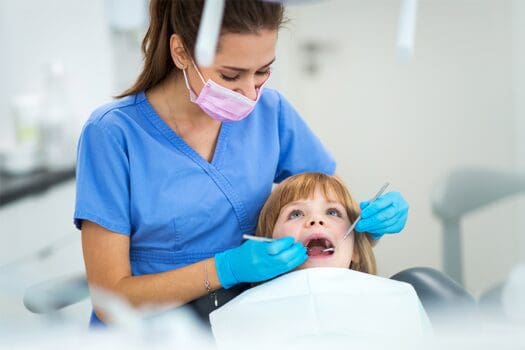What Conditions Can Laser Dentistry Treat?
Laser dentistry has become a groundbreaking tool in modern dental practices, revolutionizing how dental conditions are treated. With its precision and effectiveness, it has opened up new opportunities for both patients and dentists alike. Laser dentistry allows for minimally invasive procedures that significantly reduce discomfort, healing time, and the need for traditional tools like scalpels. This advanced technology can address a wide range of dental conditions, making it a popular choice for many individuals seeking a quicker, more comfortable solution to oral health issues. Whether for soft tissue procedures or hard tissue treatments, laser dentistry has proven to be a game-changer in the dental world. If you are in search of advanced dental treatments, explore the potential of Laser Dentistry in Dubai, which offers exceptional care and results.
Types of Dental Conditions Treated with Laser Dentistry
Laser dentistry can address various dental conditions by using focused light beams to treat soft and hard tissues. Some common conditions include:
- Cavities and Decay: Lasers can precisely remove decayed tissue from a tooth without the need for a drill, preserving more of the healthy tooth structure. This is especially beneficial for patients who experience anxiety or discomfort with traditional methods.
- Gum Disease: Lasers are effective in treating gum disease by targeting the bacteria in the gums and reshaping tissues for optimal healing. This can help avoid the need for more invasive surgery in some cases.
- Tooth Sensitivity: Laser dentistry can be used to seal tubules in the teeth, providing relief for individuals with sensitive teeth.
- Teeth Whitening: A laser can enhance the effects of teeth-whitening procedures, accelerating the whitening process and providing a brighter smile.
- Oral Lesions: Non-cancerous lesions, such as cold sores or canker sores, can be treated with lasers to promote healing and reduce pain.
Laser Dentistry for Soft Tissue Treatments
Laser dentistry is particularly effective for soft tissue treatments in the mouth, such as gum reshaping, removal of overgrown gum tissue, and the treatment of soft tissue infections. The laser energy targets specific areas, ensuring precision and minimal discomfort for the patient. Some benefits of laser treatment for soft tissues include faster healing, less bleeding, and a reduced risk of infection.

Laser Dentistry for Hard Tissue Treatments
Lasers can also be used to treat hard tissues, such as teeth and bone. These procedures typically involve the use of a specialized laser to remove decayed or damaged tooth material or to treat a cavity without the use of drills. This can make the procedure more comfortable and less stressful for the patient, especially those with dental anxiety.
Benefits of Laser Dentistry
Laser dentistry offers numerous benefits that enhance the patient experience, including:
- Precision and Accuracy: Lasers allow for highly precise procedures, which can reduce the risk of damage to surrounding tissues.
- Reduced Discomfort: The minimal invasiveness of laser treatments often results in less pain and the need for fewer anesthetic injections.
- Faster Healing: Patients often experience quicker recovery times due to the laser's ability to promote faster healing and less trauma to tissues.
- Reduced Bleeding: The laser's cauterizing effect helps minimize bleeding during and after the procedure.
- Less Risk of Infection: The sterilizing properties of the laser help prevent bacterial growth, leading to a reduced risk of infection.
Common Laser Dentistry Treatments and Their Uses
- Gum Contouring: Laser dentistry can reshape the gums to correct issues like a "gummy smile" or uneven gum lines, enhancing the overall appearance of the smile.
- Crown Lengthening: This procedure involves using a laser to remove excess gum tissue and expose more of the tooth, making it easier to place crowns or perform other restorative work.
- Frenectomy: A frenectomy removes or modifies the frenulum (the tissue connecting the lip to the gum) in cases of tongue-tie or lip-tie, often for better speech or oral function.
Frequently Asked Questions (FAQs)
How effective is laser dentistry compared to traditional methods? Laser dentistry is highly effective, providing precise results with minimal discomfort and faster healing times compared to traditional methods.
Does laser dentistry require anesthesia? Many laser dentistry procedures are minimally invasive and may not require anesthesia, but it depends on the complexity of the treatment.
Is laser dentistry safe for children? Yes, laser dentistry is safe for children and can be used for a variety of treatments, including cavity treatment and gum reshaping.
Can laser dentistry be used for teeth whitening? Yes, lasers can enhance teeth whitening treatments by accelerating the whitening process, providing quicker and more effective results.
How long is the recovery time after laser dentistry? Recovery time is typically shorter than traditional treatments, with most patients experiencing minimal discomfort and faster healing.
Conclusion
Laser dentistry has revolutionized the way dental treatments are performed, offering a more comfortable, precise, and efficient solution for a variety of dental conditions. Its ability to treat both soft and hard tissues, minimize discomfort, and speed up recovery times makes it an attractive choice for many patients. Whether you're addressing gum disease, cavities, or cosmetic concerns, laser dentistry provides an advanced approach to maintaining a healthy, beautiful smile. If you’re considering this cutting-edge treatment, look into Laser Dentistry for exceptional care and results.


Comments
Post a Comment